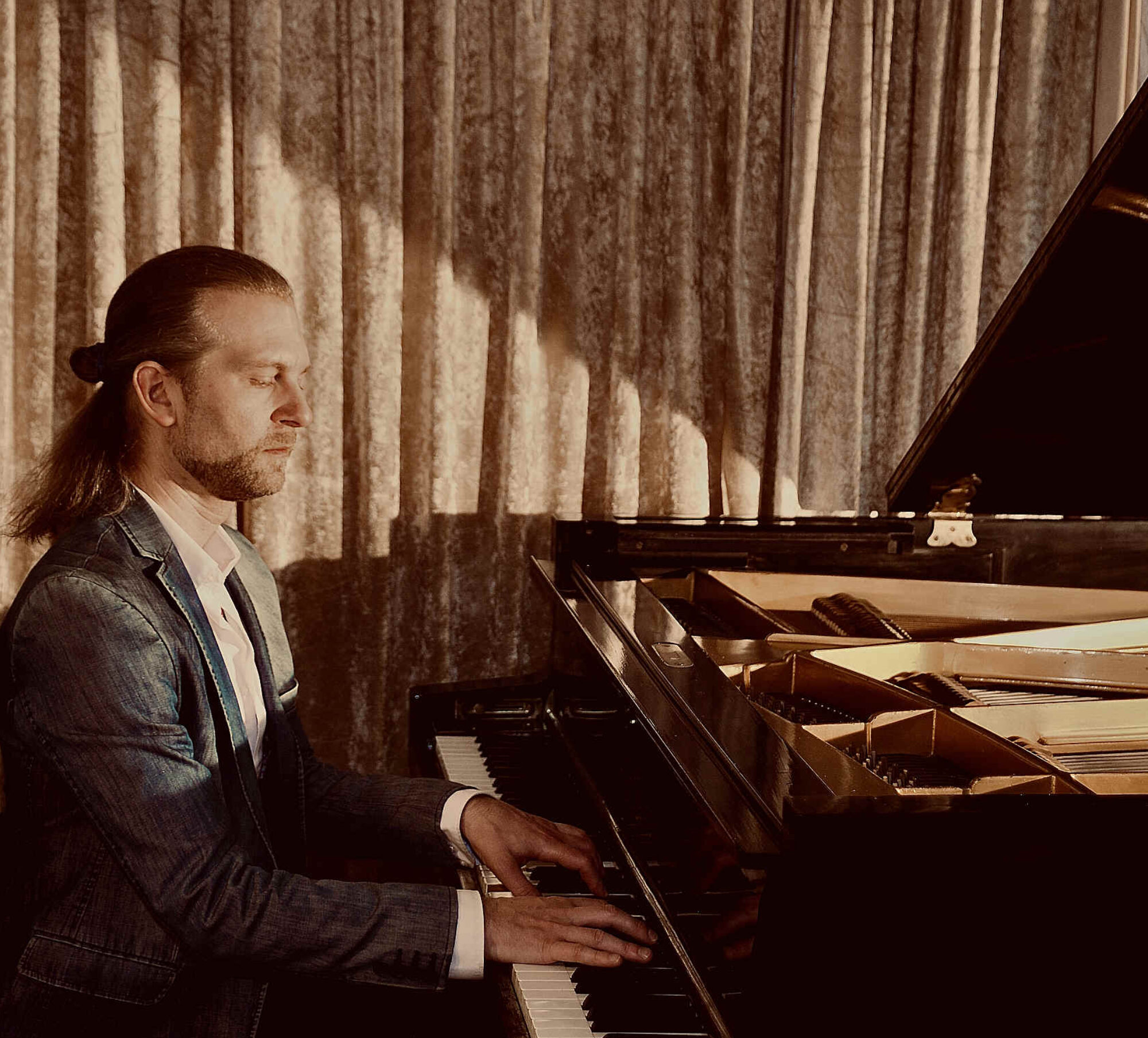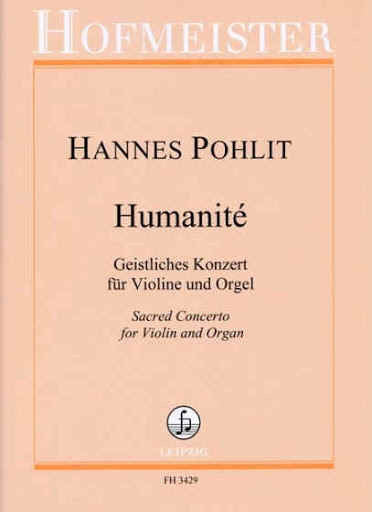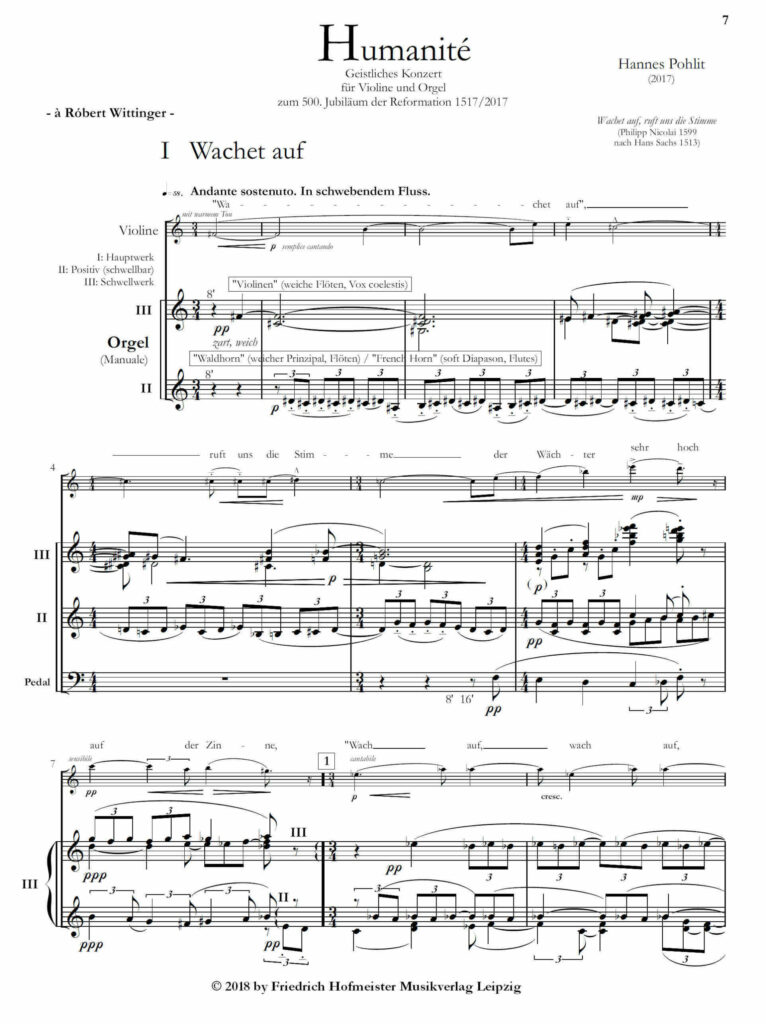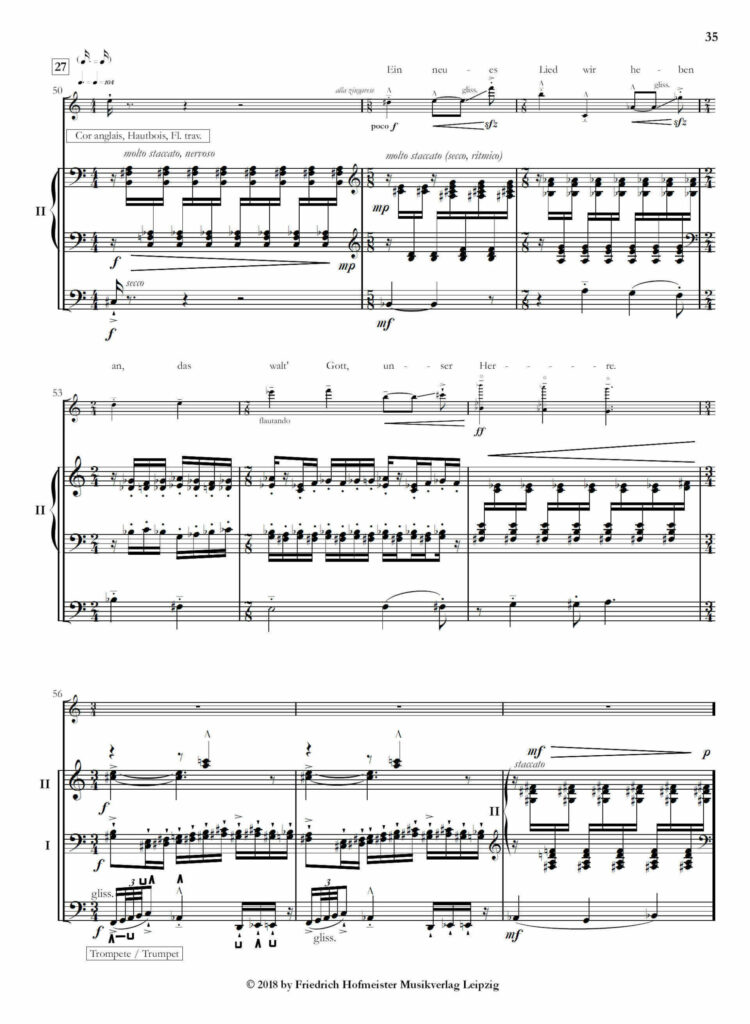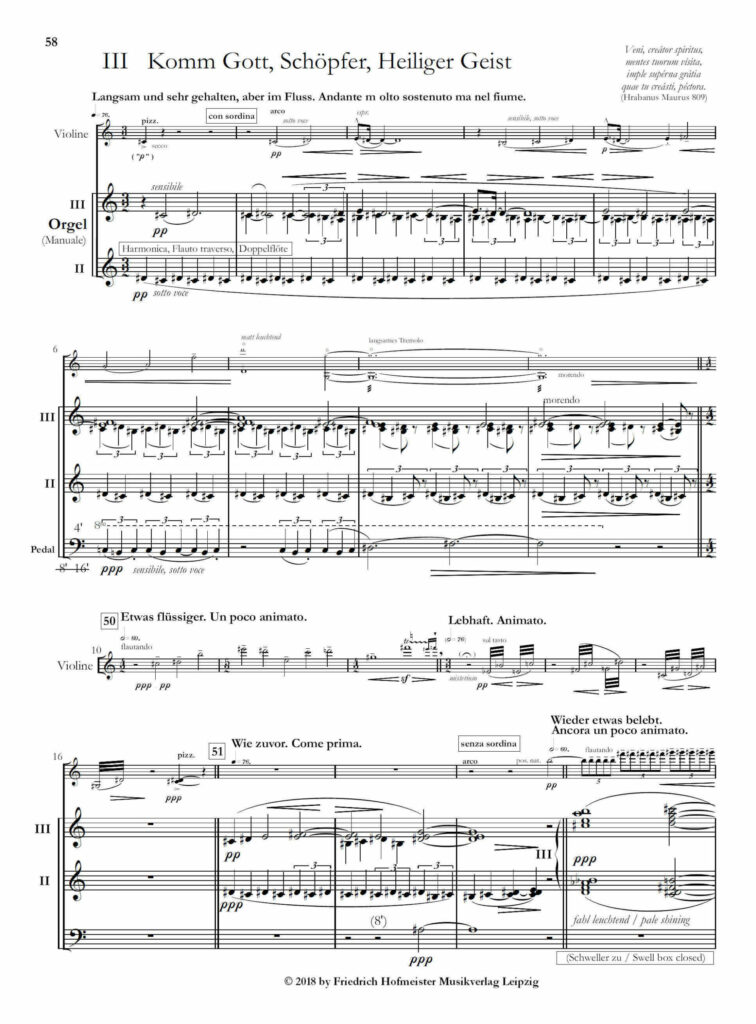2017
Sacred Concerto for violin and organ in occasion of the 500th anniversary of Reformation
dedicated to Róbert Wittinger

Publisher: Friedrich Hofmeister, FH 3429, ISMN 979-0-2034-3429-0
I Wachet auf – II Ein neues Lied wir heben an – III Komm Gott, Schöpfer, Heiliger Geist
Instrumentation:
Violin (Soloist), Large romantic Organ with at least three manuals (optimally with two Swells), ad libitum: Deep Bells or Large Tamtam and Triangle (in the 3rd movement)
World Premiere: 2018/08/04, St Nikolai Leipzig (Germany),
Opening Concert of the »OrganAutumn Leipzig«
Stefan Arzberger – violin
Simon Reichert – organ (register asssistant: Dr. Dieter Wadewitz)
Hannes Pohlit – bells and tamtam
The French word Humanité implies »mankind«, in a general, and »humanitarianism« in a more specific sense. In my opinion, the major achievement of Protestant Reformation has been the invention of humanity – the return to the awareness that God lives in every human being and that, consequently, every human being is able and allowed to communicate with the Divine. I believe that the true history of mankind is determined by simple human beings, their way of life, their ways to love and to shape their world. My violin concerto »Humanité« deals with such thoughts and feelings. Each of the three movements is concerned with the text of a hymn from the age of Reformation.
The first movement likens Reformation to the dawn of a new life, based on the call: »Wachet auf« (»Awake!«), an imperative which in German bears the plural form. The violin represents the human soul as it awakes from its (medieval) slumber, bringing – with its chant – the world to sing and to resonate, and exploring this new world filled with love and joy with open senses.
The second movement is a Capriccio on Martin Luther’s earliest transmitted hymn. »Ein neues Lied wir heben an« (»A New Song Here Shall Be Begun«) tells about the martyrdom of two monks who were burnt at the stakes in Brussels because they had confessed to Luther’s Reformation. The violin turns into the voice of protest and denouncement of in humanness and abuse of power.
Finally, the contemplative third movement reflects on the search for peace and for the unification with God as well as on the issue of God’s incarnation.
The Reformation is not only a great story of humanism, but also one of the origins of European music history, ecclesiastical chant. The solo violin »recites« the underlying plainchants; comparable to a singing voice, its part is composed with the texts of the hymns in mind. The organ is assigned to describe the world in complex, colourful dimensions, but also the enemy who opposes the soul with crude force.
Tradition is what remains of great, often passionate emotions and visionary ideas;
sometimes, after centuries, only an outer shell is preserved. In this sense, at the end of the violin concerto, the »original« hymn – »Wachet auf, ruft uns die Stimme« (»Wake, Awake, for Night is Flying«) reappears in the organ pedal keyboard in its tonally transmitted form while the violin part rises into a dramatic climax, accompanied by the ominous call of distand fanfares and storms, until it is suppressed by the thunder of the organ Plenum and the ringing bells, bringing its chant to end.
(Hannes Pohlit)
Performances:
2018/08/04, St. Nikolai Leipzig (Nikolaikirche Leipzig)
2019/06/16, Collegiate Church (Stiftskirche) Landau
2020/06/14, Memorial Church (Gedaechtniskirche) Speyer
